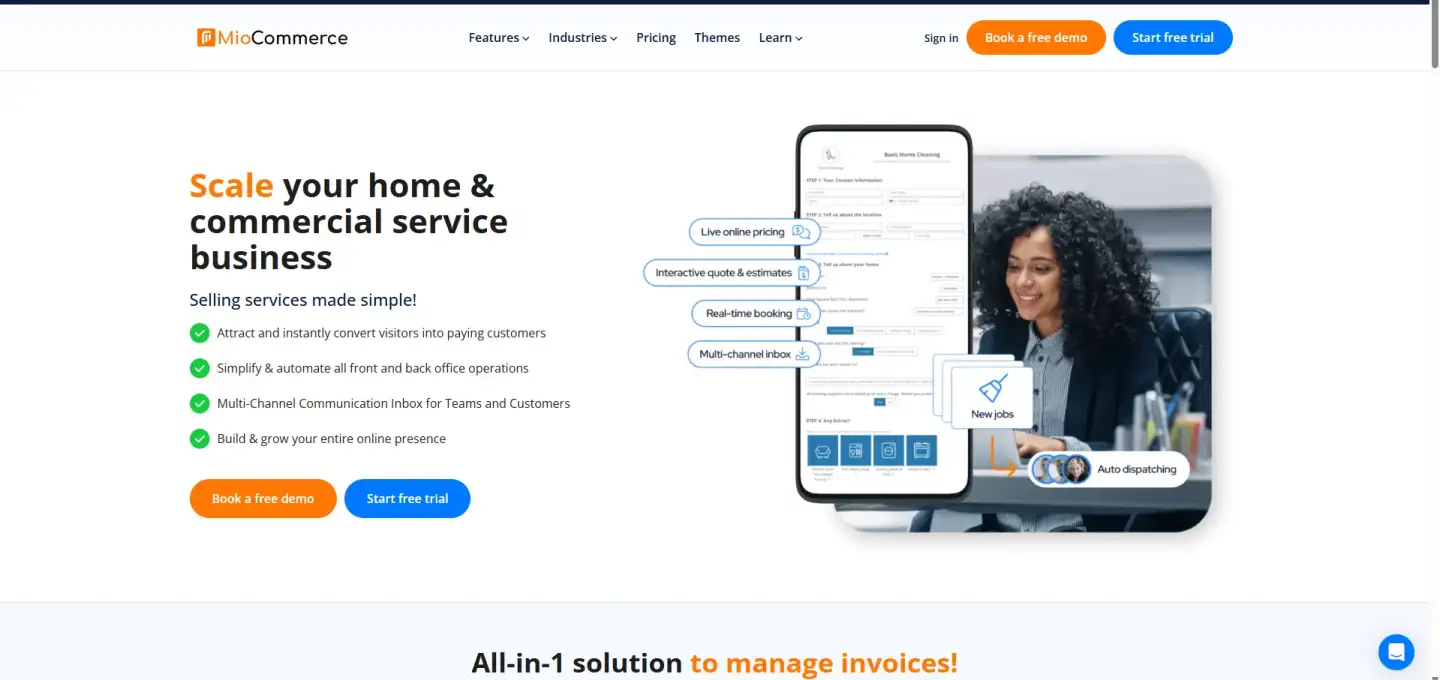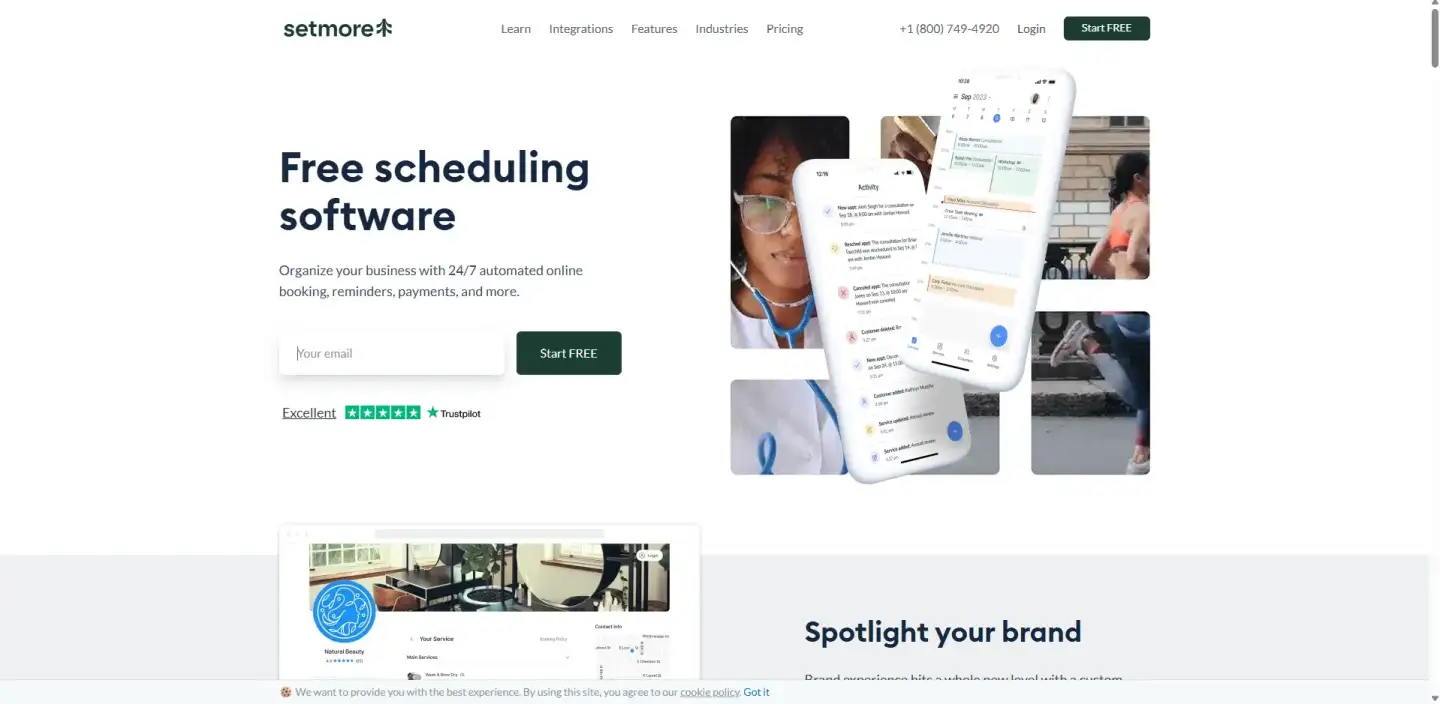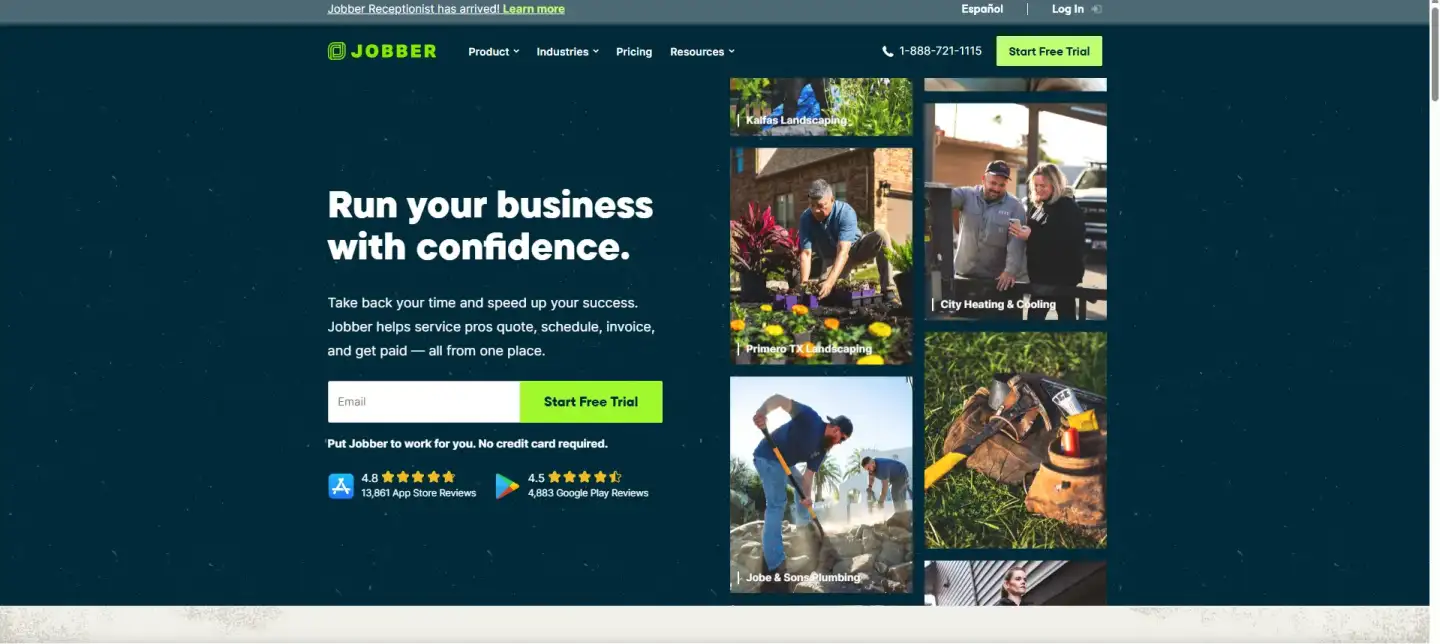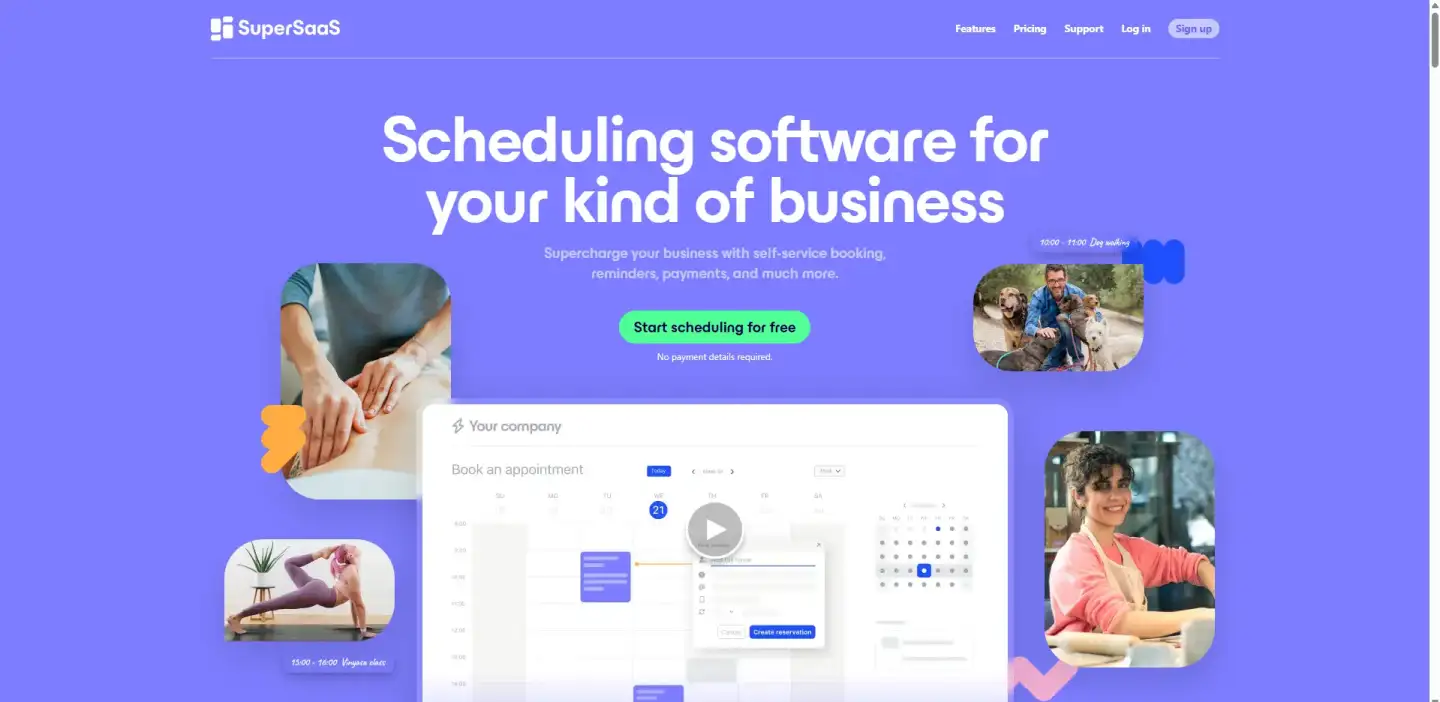TL;DR: If Appointy isn’t a perfect fit, the top Appointy alternatives for various industries, including Android users, are SimplyBook, miocommerce, setmore, housecallpro, getjobber, and supersaas.
Pick SimplyBook for deep customization, miocommerce for booking + payments/POS in one place, setmore for simple and affordable scheduling, housecallpro for field-service operations with robust functionality, getjobber for scaling service teams, and supersaas for the lowest cost with lots of flexibility.
Looking to streamline your small business scheduling?
Discover the 👉best scheduling software for small businesses👈 — simplify bookings, team management, and client coordination with powerful all-in-one tools built to save time and boost productivity!
What is Appointy (and why look for competitors)?
Appointy is an online scheduling software appointment scheduling solution for small and mid-size businesses looking to enhance their business operations. It handles online bookings, reminders, basic payments, and calendar sync.
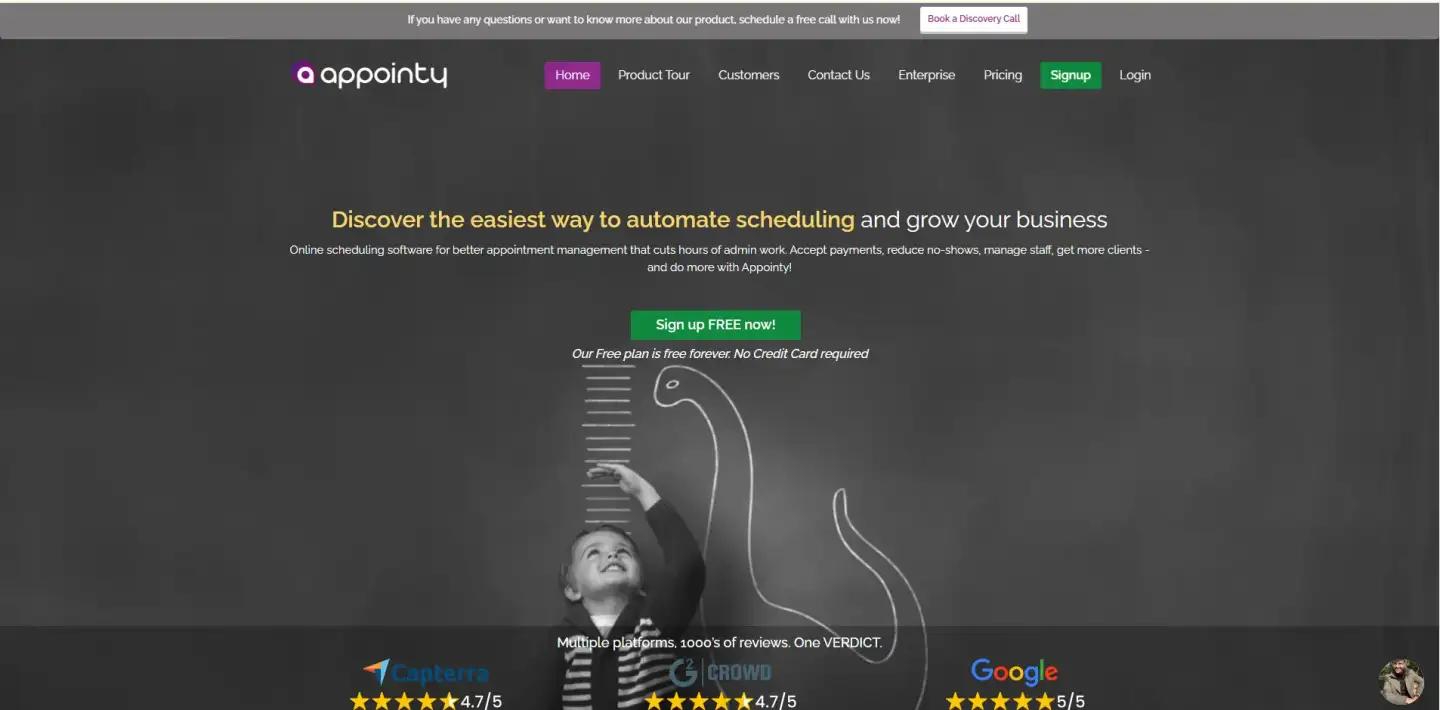
It’s a popular choice for salons, fitness, education, and consulting. You might look for Appointy competitors if you need:
stronger branding and custom booking flows,
deeper analytics and team management,
tighter payments/POS, or
simpler pricing for multiple staff.
SimplyBook.me
Best for: businesses that want heavy customization and a branded booking experience at affordable pricing plans.
Standout features: custom forms, branded pages, advanced notifications, packages, memberships, intake questions, coupons, calendar sync, and additional features.
Pros: very flexible; easy to tailor per service/staff; good for multi-location.
Cons: advanced options can feel “busy” at first; some features are add-ons.
Pricing overview: free plan available; paid tiers with higher booking limits and premium features.
MioCommerce
Best for: service businesses that want booking + payments + POS in one system, including Google Meet integration.
Standout features: drag-and-drop calendar, real-time booking pages with pricing, testimonials, fast call-in booking from the dashboard, integrated payments and checkout, customer profiles.
Pros: everything to sell and schedule services in one place; great for salons and on-site services, and seamless integration with Google Meet.
Cons: some advanced options require setup time; pricing can vary by package.
Pricing overview: free trial available; paid plans scale by features and usage.
Setmore
Best for: solopreneurs and small teams that want an ideal choice for a clean, affordable scheduling tool that syncs with Google Calendar.
Standout features: quick setup, online booking page, reminders, recurring appointments, classes/events, calendar sync, basic payments.
Pros: very easy to learn; works on web and mobile; generous free plan.
Cons: fewer deep automations than “operations” tools; branding options are simpler.
Pricing overview: free plan; low-cost paid tiers per user for advanced features.
Housecall Pro
Best for: home and field services (HVAC, plumbing, cleaning, electrical, etc.).
Standout features: scheduling and dispatch, including Acuity Scheduling, a variety of features like estimates and invoices, on-site payments, job routes, team mobile app, follow-ups and reminders that take operations to the next level.
Pros: built for crews on the road; reduces admin work; strong mobile experience.
Cons: heavier than a simple scheduler; best results come with training the team.
Pricing overview: tiered plans; free trial; add-ons for advanced operations.
Jobber
Best for: growing service companies that need CRM + quotes + scheduling + invoicing along with effective client management.
Standout features: quotes and approvals, job scheduling/dispatch, client hub, automations, reporting, payment collection.
Pros: end-to-end workflow from lead to paid invoice; scales with your team, making it a great choice for those looking for comprehensive solutions.
Cons: more features than very small teams may need; plan choice matters.
Pricing overview: multiple tiers from solo to larger teams; monthly or annual billing.
SuperSaaS
Best for: tight budgets that still need flexible rules and group scheduling.
Standout features: powerful booking rules, group sessions, waitlists, resource constraints, reminders, calendar sync, and payment processing gateways.
Pros: very configurable; low cost; good for classes, rentals, and complex time slots.
Cons: interface looks utilitarian; setup can take a bit for advanced rules.
Pricing overview: free plan; low-cost paid packages based on usage/limits.
Quick Comparison
Tool |
Best For |
Calendar Sync |
Payments |
Team/Control |
|---|---|---|---|---|
SimplyBook |
Custom, branded bookings |
Yes |
Yes |
Medium |
Miocommerce |
Booking + POS in one |
Yes |
Built-in |
Medium |
Setmore |
Simple & affordable |
Yes |
Basic |
Low-Med |
Housecall Pro |
Field-service operations |
Yes |
Yes |
High |
GetJobber |
Scaling service teams |
Yes |
Yes |
High |
SuperSaaS |
Budget flexibility |
Yes |
Yes |
Low-Med |
Which Appointy alternatives should you pick?
Choose SimplyBook if you care most about:
branded booking pages, custom forms, memberships/packages, and granular control.
Choose miocommerce if you need:
a unified place to sell services, take payments, and manage online + in-person bookings.
Choose setmore if you want:
fast setup, easy reminders, classes/events, and ease of use at a friendly price for small teams.
Choose housecallpro if you run:
field teams that need dispatching, estimates/invoices, mobile workflows, and routing.
Choose getjobber if you’re growing and need:
quotes - jobs - invoicing with automations and reporting across multiple staff.
Choose supersaas if you’re on a budget but still need:
complex rules, group bookings, and waitlists without heavy software.
Why businesses move from Appointy alternatives
Branding & control: desire for custom intake, memberships, bundles, and sales add-ons.
Operations depth: need estimates, jobs, dispatch, and invoicing (field service).
Payments/POS: tighter integration for in-person and online payments.
Team scale: clearer roles/permissions, reporting, and multi-location support.
Pricing model: predictable costs as staff and bookings grow.
Migration tips (keep it painless)
Audit your setup: services, durations, buffers, staff calendars, locations, taxes, payment flow, and ensure you have the right support team in place.
Map features: match must-haves (e.g., classes, deposits, memberships, reminders) to the new tool.
Import data: customers, services, staff, upcoming bookings; set timezone and business hours.
Connect calendars & payments: verify 2-way sync and test a real booking end-to-end, including social media promotions like Instagram.
Brand the booking page: logo, colors, service descriptions, policies, and confirmation emails/SMS.
Soft launch: open bookings to a small group first; collect feedback; then announce broadly.
Measure results: no-show rate, booking completion rate, time-to-invoice, revenue per booking.
Looking to stay ahead in digital marketing and AI trends?
Check out the 👉Our Blog👈 — your go-to source for expert SEO tips, AI tool rundowns, and B2B marketing insights!
FAQ
The six stand-out picks are SimplyBook, miocommerce, setmore, housecallpro, getjobber, supersaas.
Choose housecallpro if you want dispatch, estimates, invoices, and strong mobile tools. getjobber is great when you also need CRM, quotes, automations, and reporting.
For most solo users and small teams, setmore is the easiest to start and run.
SimplyBook offers the deepest customization: branded pages, forms, memberships, coupons, and more.
Supersaas typically offers the lowest cost with powerful scheduling rules.
Go with miocommerce for an all-in-one booking + payments/POS flow.
Last updated: 10.10.2025




